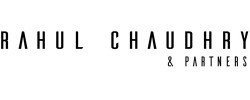Trademark advertising in India through Google Ads – Current scenario
31 October 2022

India has been pro-actively dealing with trademark registrations, infringements and safeguarding proprietor’s rights with respect to their trademarks of concern. The change can be witnessed with the complete overhaul in the functioning and faster services of the Trademarks Registry, from digitalization of all records/files to appointment of hearings to clear the backlog of pending/opposed trademark applications. Introduction of expedited examination of marks to expedite the various stages of trademark applications until the mark is registered has been a boon to the proprietors who wish to obtain registrations at a faster pace. It can be safely assessed that securing trademark rights by way of filing new trademark applications and enforcing rights in a court of law by way of infringement/common laws actions has been on rise. This shift has led to developing interests among individuals and corporates to take measures of protection of their trademark rights in a dynamic way.
Along with securing trademark rights, the proprietors are placing their focus in advertising their businesses through their trademarks. One of the greatest ways to advertise the brand and goods/services offered thereunder, is to publicize the same on the internet. Search engines such as Google, Yahoo and others are used by general public to check regarding any information or detail which they require. The general idea is to use keywords such as “pizza”, “shoes”, “mobile phones”, etc., any other word for which information is required. Google.com is the most commonly used search engine in the world. Google LLC, the parental American entity which owns the website Google.com, has initiated a Google Ads programme with a heading “Show up when people search for what you offer.” It has been mentioned on their page that Google is where people search for what to do, where to go and what to buy. Your ad can appear on Google at the very moment someone is looking for products or services like yours.
Google LLC has also offered a Keyword Planner which helps in choosing the right keyword. This tool gives a consumer an insight into how searches have been conducted over the time, in order to enable them to figure out the required keywords. This tool further gives suggested bid estimates for each keyword for finalizing purposes at consumer’s end.
Since Google.com is the giant over the entire internet services, consumers are investing in Google ads without having any doubt as to whether it will increase their sales. This feature is now used by various companies and organizations to divert the relevant consumers directly to their webpages and products/services. Search engine advertisements have witnessed a constant growth in India, which has further triggered the complaints of trademark infringement by way of alleged misuse of keywords, so much so that the companies whose rights have been infringed are alleging Google of undertaking monopolistic practices and being discriminatory to companies who have not opted for such ads. In some instances, Google Ads have been alleged of being “a vehicle for trademark infringement by companies”.
Typically, a Google search report results into a page containing number of websites offering similar goods and services by different entities. Considering the immense popularity of Google among consumers, companies thrive to top the search results so that the maximum crowd is diverted on their website. In order to achieve the same, brand owners have also adopted unlawful and anti-competitive practices on this platform. Cases such as, M/s DRS Logistics Pvt. Ltd. and Anr. v. Google India Pvt. Ltd. and Ors and Makemytrip India Private Limited v. Booking.com B. V. & Ors are among the recent and widely discussed cases of trademark infringement through Google Ads, which raises a very important question whether Google can rely on its intermediary status and escape the aftermath of these cases. At the outset, Google recognizes the importance of trademarks and the Google Ads Terms and Conditions prohibit intellectual property infringement as per the available trademark guidelines. In the aforementioned cases, Google, who was also a defendant, relied on the below points: The use of trademarks as keywords does not qualify as ‘use’ under the Trade Marks Act, 1999, and in any event, does not fulfil the constituents of infringement or passing off.
Google has contended in similar cases that the “keywords” are merely words which result into the search result pages and therefore, such keywords are never used in a “trademark sense”, i.e., to allow a user to associate the mark with the goods or services of the mark owner Google relied on Section 79 of the Information Technology Act, 2000, which protects intermediaries from being held liable for third-party content made available or hosted by the intermediary on its platform, if the specified prerequisites are met.
This argument has been set aside by the courts stating that Google is encashing the goodwill of the trademark owner by allowing the competitor to book the said mark as a keyword through bidding system, as per their keyword planner tool, as discussed earlier.
In the most recent case of Makemytrip the court discarded the common view of terming the use of keywords in Google Ads as an “invisible use” (as held in the DRS Logistics case). As held by the court in the Makemytrip
case, there is not much of a difference in the use of a mark in a metatag or a source code of a website which is not visible and in use of a mark as a keyword by Google Ads programme, inasmuch as the mark being used in a hidden manner does not take away the fact that it is, in fact, ‘use’ of the mark as defined under Section 2(2)(b) of the Trade Marks Act.
This decision has clarified the stance of Google in similar cases of Google Ads. As the use of keywords are directly resulting into the advertising of brands on Google.com, and the fact that Google is encashing on brand owners for using such tags, the liability of Google also arises with respect to safeguarding of a brand owner’s rights. Therefore, it can be successfully assessed that resourceful advertising through Google Ads should also abide by the local trademarks law.








